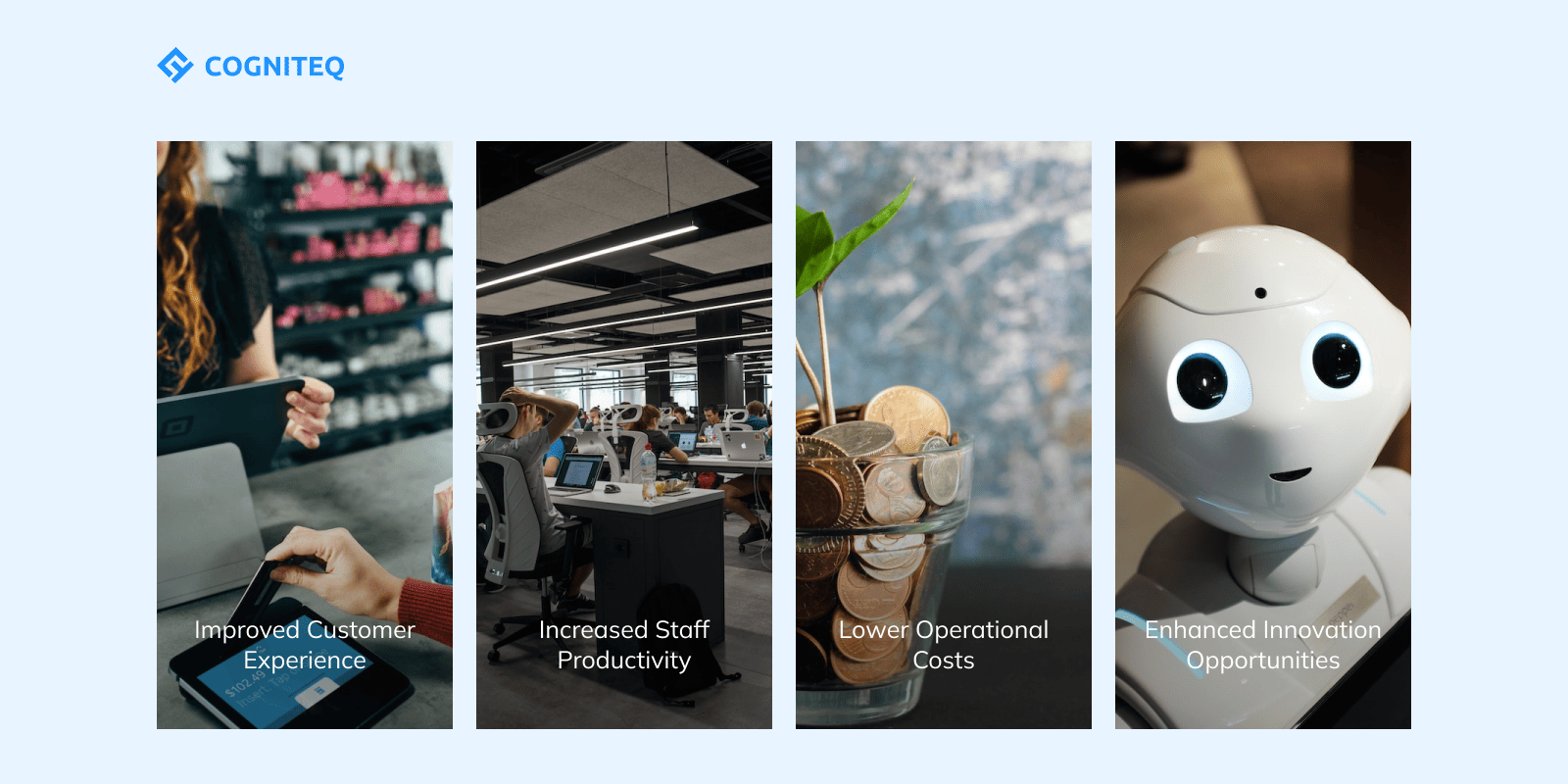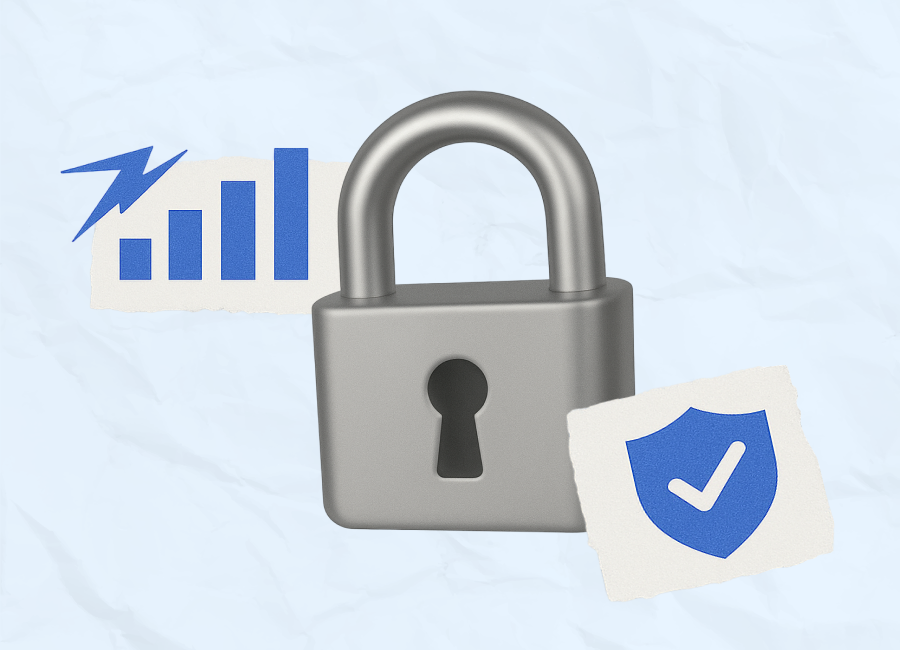If your company is going digital, you should definitely consider using IoT technology as one of the components of your transformation. IoT enables businesses across many sectors to gather fresh data, analyze that data to get valuable insights, and then put those findings into practice.
In this article, we’re giving you an overview of exactly what role IoT plays in enterprise digital transformation as well as the benefits, trends, and challenges surrounding its implementation.
What Is Digital Transformation?
Digital transformation is commonly referred to as the practice of using digital technology to enhance corporate processes and products. It enables firms to compete in the current market and prepare for the future evolution of the industry.
Historically, the main goal of digital transformation technologies has been to replace manual processes with digital ones. For instance, documents may now be scanned and saved on a computer's hard drive, as opposed to keeping stacks of physical copies around the office. But, of course, it gets much more complicated than that: from mobile banking platforms to replace physical banks to autonomous driving assistance systems.
Role Of IoT In Digital Transformation
In short, the influence of IoT on digital transformation processes can be highlighted with one word - data. IoT uses a vast array of physical devices that gather valuable information from its surroundings in real-time. The kind of information that you consider critical will, of course, depend on your industry - it could measure practically everything from temperature to a number of objects inside a building.
Whatever data is gathered, it is then transformed into a digital payload by software, encrypted, and sent to the company's database, which is housed in its data center or in a public or private cloud. On top of that, IoT doesn’t have to be all about internal processes, it can be customer-facing too. IoT devices can be used to determine customer needs and increase client’s interactivity with your business.
IoT Trends Accelerating Digital Transformation
As stated above, there’s way more than one use case for IoT in digital transformation, so let’s break down some of the most popular trends:

- IoT Wearables
Wearable IoT devices enable users (employees) to quickly link with other digital devices and systems, enabling them to monitor, regulate, and assess various ongoing processes and make informed decisions;
- Artificial Intelligence of Things (AIoT)
The potent union of AI and IoT can be a major driving force—thanks to AI's use of machine learning and a variety of other cutting-edge algorithms, IoT tends to perform even better than usual. At the same time, IoT provides AI with connectivity and data-based inputs, enabling smarter, more efficient decision-making. To fully harness this synergy, it's vital to collaborate with experienced IoT firms. These companies can offer the expertise needed to seamlessly integrate AI with IoT systems, ensuring that both technologies work together optimally to drive innovation and business growth;
- Digital Twin
A digital twin is a virtual clone of real-world systems, devices, and objects that use data from IoT in real-time to optimize performance. Automotive, manufacturing, and healthcare industries are where digital twins are most frequently used;
- 5G
Fifth-generation mobile network technology is having a significant impact on IoT since it makes communication quicker, more secure, and more reliable;
- Internet of Behavior (IoB)
IoB is a research and development tool that enables tracking and monitoring of both individual and societal human behavior. Understanding the motivation behind the decisions your target audience makes can help you convert leads into deals more efficiently.
IoT applications - for your digital business?
Brilliant idea! Our IoT technology experts will help your company become more advanced and efficient than ever.
IoT Digital Transformation Benefits
The list below doesn’t encompass all the possible positives that your business can take from IoT, but highlights some of the major ones.

Improved Customer Experience
Nowadays, more and more clients are expecting your business to deliver prompt, real-time solutions and assistance to satisfy their needs. Therefore, the need from businesses to develop digital solutions built on cutting-edge technology, improving consumer experience, is quite apparent.
Thanks to IoT solutions, businesses can gain detailed insights into the behavior and purchasing habits of their customers and use this information to personalize and optimize client experiences.
Increased Staff Productivity
IoT technology may help your business maintain high levels of employee engagement productivity with connected devices. They provide uninterrupted employee communication and enable workers to instantly share vital information. Additionally, they provide employees with access to data sources in real time and from any location, saving time, effort, and increasing staff productivity.
Lower Operational Costs
Depending on your industry, IoT digital transformation will enhance waste management, utility usage, and other operational processes to lower expenses for modern businesses. Water and other natural resources, if used efficiently, will definitely save you a lot of money. At the same time, a decrease in operating expenses will eventually boost your company's return on investment.
Enhanced Innovation Opportunities
Connected devices are not only good for retrieving data - IoT technology's ability to easily integrate with such drivers of progress as AI, AR, and Blockchain is another important feature. Your research and development department can reap a lot of benefits from combining multiple powerful technologies and experimenting with the outcomes.
Challenges In IoT Digital Transformation
Like with every potentially beneficial business operation, there are risks and challenges associated with IoT digital transformation. In a lot of cases, you should contact an experienced team of IoT implementation specialists to help you handle these challenges. Either way, the most common ones are as follows:
Security Concerns
Probably the most obvious one - because of security concerns, many firms are hesitant to invest in IoT initiatives. They are understandingly worried about safeguarding both internal and customer data. themselves and their clients. According to a study by Omdia, 53% of respondents stated that security is the #1 issue for organizations when trying to implement g IoT.
However, with each passing year IoT devices and IoT technology in general is becoming more and more secure - yes, it may take you some time to choose vendors for your IoT solutions, but with enough care and attention, your data will be safe.
Investment Risks
Adopting IoT is, to put it simply, a significant investment - the cost of buying and installing IoT systems and devices might be more than some would’ve preferred. Not to mention, the time you spend understanding how the Internet of Things works, organizing your first IoT project, putting new systems into place and modernizing older procedures may seem unaffordable.
Admittedly, not all IoT implementations are a roaring success, but it will very much depend on your team objectives, resources, and maturity. Start small, adapt to failure, gather information, draw conclusions, and try again.
Compliance Issues
A problem that is not too obvious, but nonetheless, the observance of data privacy laws can pose a serious problem when implementing IoT. For instance, businesses operating in the EU are subject to very rigorous compliance regulations; General Data Protection Regulation (GDPR) fines alone can equal a substantial part of a business's annual sales.
There is a lot on the line when you consider how much money businesses can lose due to a loss of client trust. The key to achieving compliance is choosing the appropriate vendors - they should provide proof of their security measures and audit history.
Conclusion
Enterprise digital transformation is a process that will only keep evolving and getting more sophisticated as technology keeps evolving as well. And there are few digital transformation technologies as important as IoT. From wearable devices to digital twins, IoT will help you make your business more efficient, innovative and customer-friendly. Of course, there are a number of challenges coming with IoT implementation, such as financial, legal and security risks. But they can all be dealt with quite smoothly, especially if you reach out to a team of IoT professionals like Cogniteq.























































